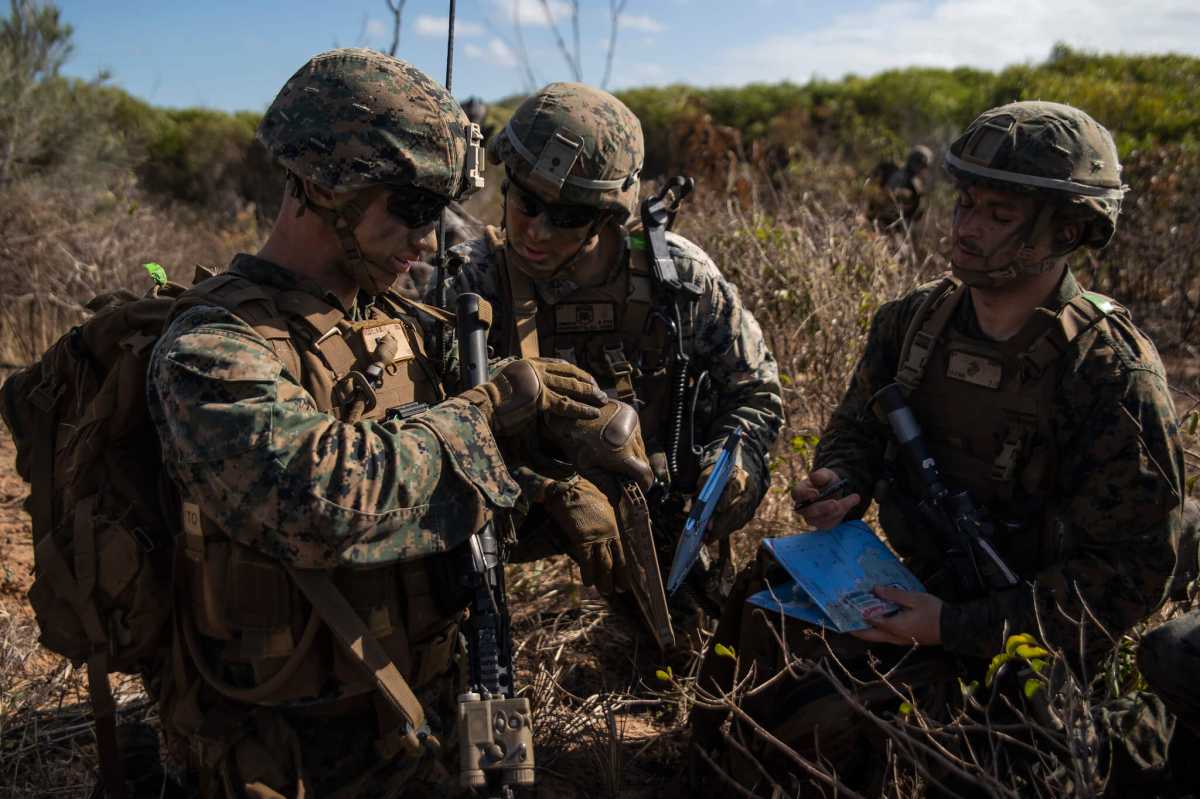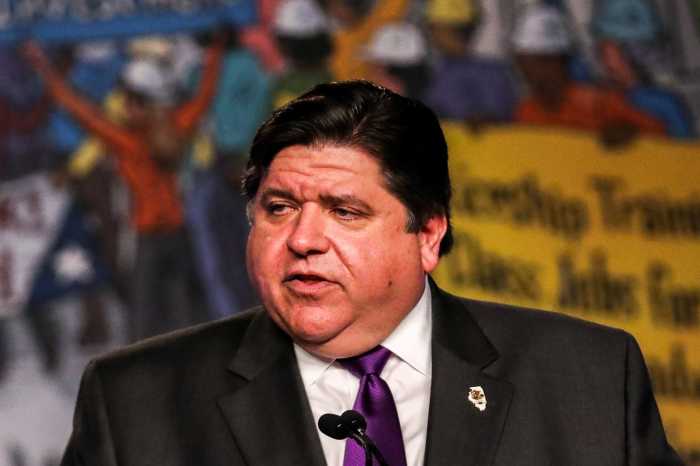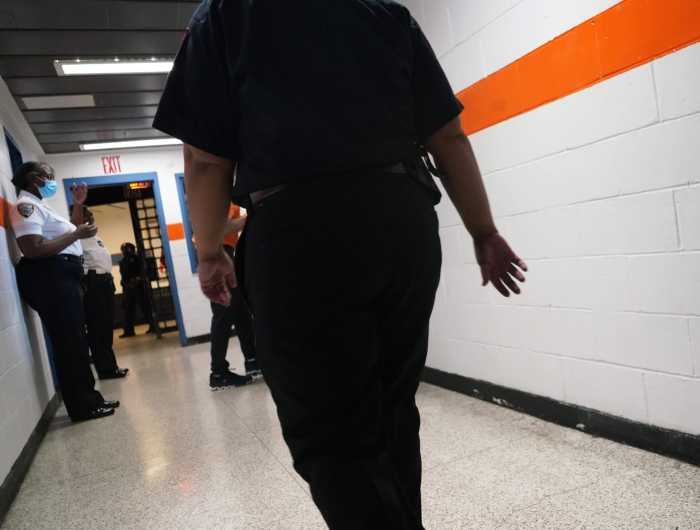US District Judge Leonie M. Brinkema issued a permanent injunction on April 6 enjoining the military from “categorically barring the worldwide deployment of asymptomatic HIV-positive service members with undetectable viral loads based on their HIV status.”
As part of the order, the military must abandon its policy of denying commissions to officers or discharging personnel based on the contention that their asymptomatic, undetectable HIV infection, makes them undeployable.
Judge Brinkema put a seal on her opinion to give the parties a few weeks to seek modifications of the opinion out of privacy or security concerns. She removed the seal and the opinion became public on April 21.
Judge Brinkema’s opinion was heavily influenced by a ruling by the US Court of Appeals for the Fourth Circuit, based in Richmond, Virginia, which upheld the judge’s grant of a preliminary injunction barring the discharge of two HIV-positive service members. That opinion, issued on January 14, 2020, endorsed her conclusion that the current military policies are based on outmoded information from early in the AIDS epidemic that failed adequately to take account of the impact of retroviral medication and studies showing that people living with HIV who are compliant with their treatment regimen will not present the risks that the military had deemed unacceptable when these policies were adopted.
In light of the Fourth Circuit’s ruling, the new opinion focuses mainly on whether the military presented any new evidence that would contradict the appellate ruling, and the court found none.
The April 6 decision involved two separate cases.
Nicholas Harrison served in the Army from 2000 to 2003, then left active duty and joined the National Guard while pursuing higher education, eventually earning a law degree. His education was interrupted when his National Guard unit was deployed to Afghanistan for 16 months. After he earned his law degree, his unit was again deployed, this time to Kuwait for eight months. After returning from Kuwait, he was diagnosed as HIV-positive, began antiretroviral treatment and quickly achieved undetectable viral levels. In 2013, Harrison applied for a position in the Judge Advocate General Corps to be a military lawyer, but his application was rejected because of his HIV-status, and he sued, claiming that the categorical disqualification was irrational, violating his rights under the Fifth Amendment’s equal protection component and the Administrative Procedure Act.
The other case involves two Air Force enlisted men who tested HIV-positive while in the service. They are identified in the opinion as Richard Roe and Victor Voe. Each of them have undetectable viral levels as a result of antiretroviral treatment. Nonetheless, the Secretary of the Air Force rejected their appeal of a determination that they should be discharged. In this case, Judge Brinkema issued a preliminary injunction requiring the Air Force to allow them to continue serving while this case was decided, which the Fourth Circuit upheld in its 2020 decision.
Although the issues of commissioning officers and deciding whether to discharge service members who become infected while in service are different, nonetheless they both turned on the same issue: whether it violates Equal Protection or the requirement under the Administrative Procedure Act that government policies not be arbitrary or capricious for the military to establish a categorical rule that people living with HIV may not be commissioned as officers or continue serving as enlisted personnel because, in the opinion of the military, they are not “deployable” worldwide.
Judge Brinkema’s decision focused on the scientific data that undermines this military determination. She begins by quoting extensively from the Fourth Circuit opinion, which reviewed the data and upheld Brinkema’s decision to block the Air Force from discharging Roe and Voe. She then systematically dismantled the various arguments the military made to attempt to justify their policy, pointing out the flaws in each of their arguments. For example, the military argued that plaintiffs could not prevail on an equal protection claim because, they contended, there was nobody in the military similarly situated to them as a comparator. But the lawyers for the plaintiffs were able to show a range of medical conditions that require continuing treatment that are not treated as disqualifying by the military. The only thing distinguishing them from HIV was the issue of transmissibility, and as to that, the current data on undetectable viral loads could not be refuted by the military.
The military also argued that because its regulations provide for the possibility of “waivers,” the HIV exclusions were not literally “categorical.” But this was belied by evidence that no waiver has ever been granted to an HIV-positive service member. Even though an Air Force regulation provides that people are not disqualified from continuing to serve solely because they test HIV-positive, the military takes the position that they are not discharging people solely because they are living with HIV, but because of the risk they pose of transmission to others or to themselves due to hazards they face on deployment. The court rejected these arguments.
Responding to the argument that military personnel decisions are entitled to substantial deference from the courts when they are based on military expertise, the judge pointed out that “the amicus brief filed in the Fourth Circuit by an impressive array of former high-ranking military officers, including the former Secretaries of the Army, Air Force, and Navy, fully supports the conclusions of this court.” That brief stated, “It is our professional military judgment that there is no legitimate reason to deny HIV positive service members the opportunity to deploy. We base this judgment on decades of military experience and the current understanding of HIV — its treatment, its transmission, and the capability of and prognosis for those in care.”
“Having concluded that the military’s categorical bar to the worldwide deployment of HIV-positive service members is irrational and therefore unlawful,” wrote Judge Brinkema, “it is clear that the individual discharge decisions concerning Roe, Voe, and the similarly-situated active-duty Air Force members, which were based entirely on that deployment bar, also constitute unlawful agency action under the APA.” While conceding that the issue of commissioning a reserve member as an officer presented different considerations, and it was possible that Harrison might not qualify for other reasons (for example, the military imposes age limits for commissioning new officers, for which Harrison would need to get a waiver that would require passing various stringent physical requirements), the judge noted that her decision would not require the military to commission Harrison, but rather to consider his application for a commission in the JAG Corps without regard to his undetectable HIV viral load.
When these cases began, the plaintiffs were represented by OutServe-SLDN, an offshoot of the Servicemembers Legal Defense Network, which as a result of subsequent organizational mergers is now identified as the Modern Military Association of America. Plaintiffs are also represented by Lambda Legal and pro bono attorneys from Greenberg Traurig LLP and Winston & Strawn LLP. Attorneys from the US Attorney’s Office in Alexandria, Virginia, and the Defense Department represent the defendants.
Judge Brinkema’s decision is, of course, subject to appeal to the US Court of Appeals for the Fourth Circuit, but that court’s ruling upholding her preliminary injunction makes it very unlikely that an appeal would be successful. Judge Brinkema was appointed to the district court by President Bill Clinton in 1993.



































